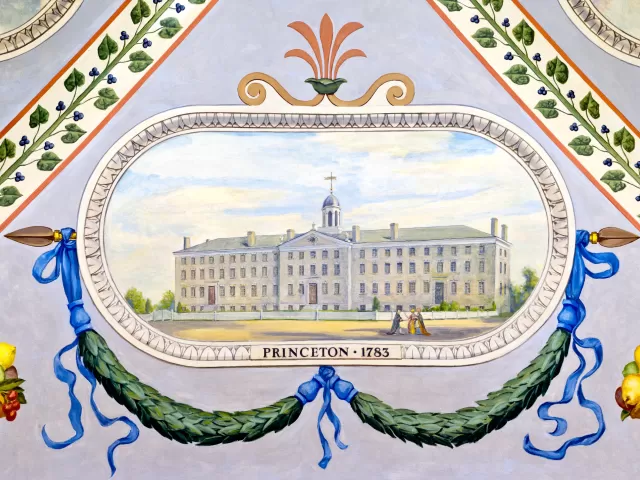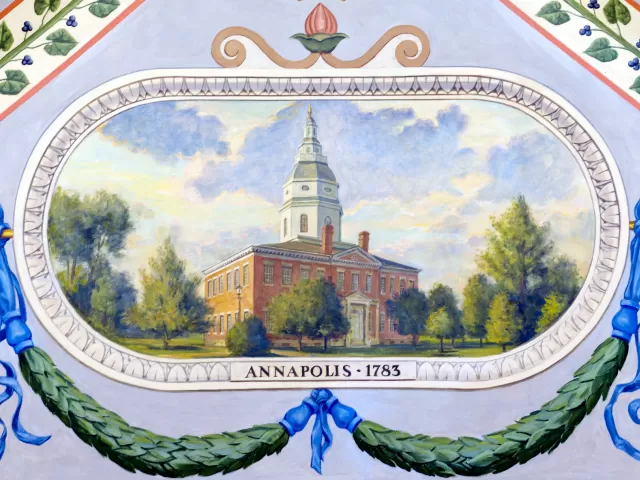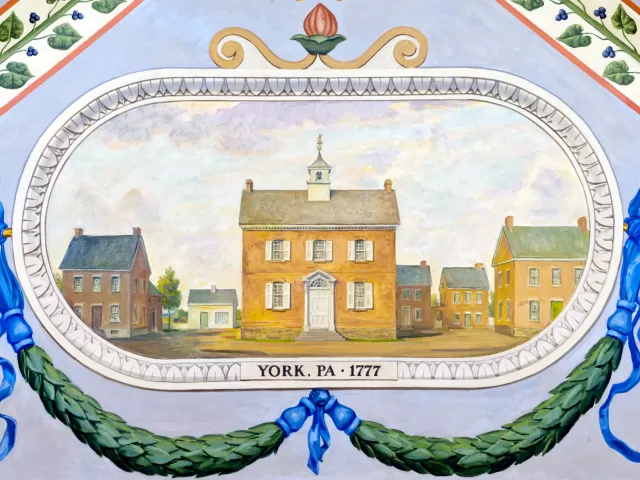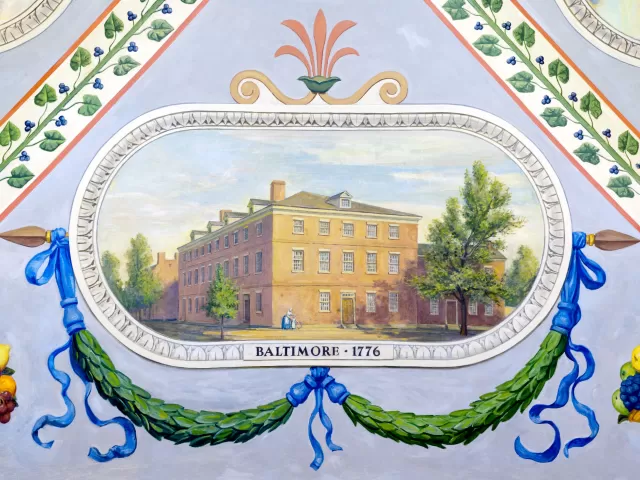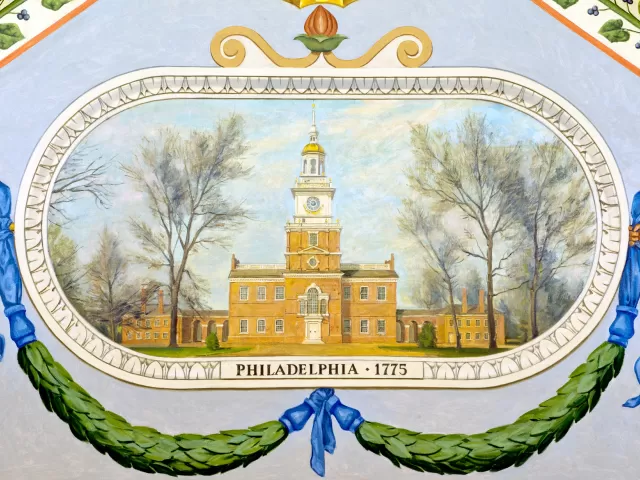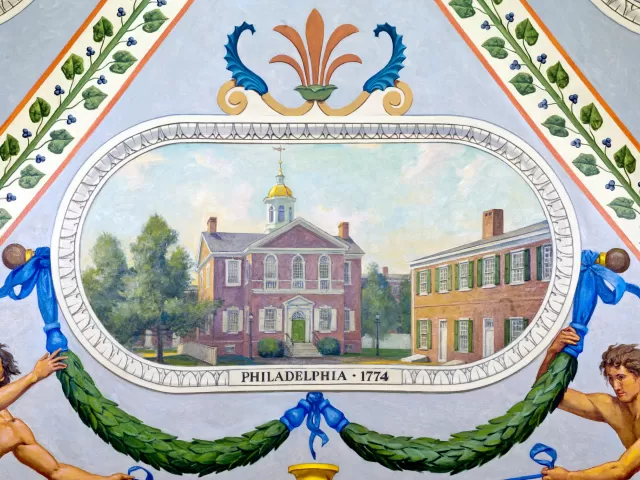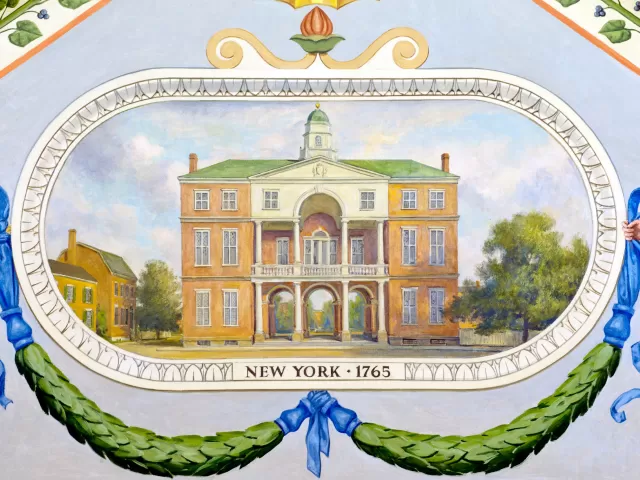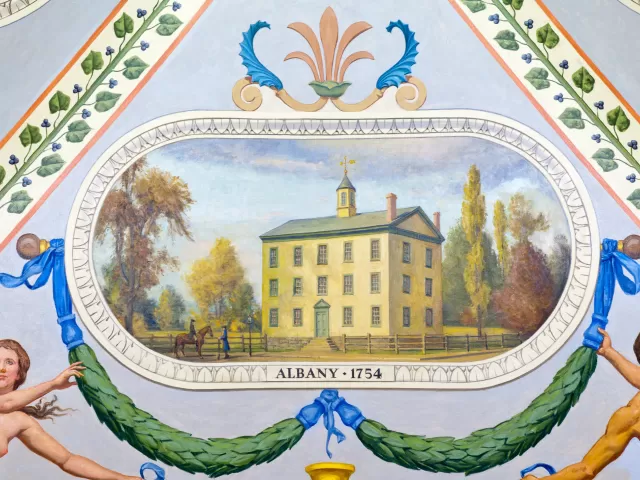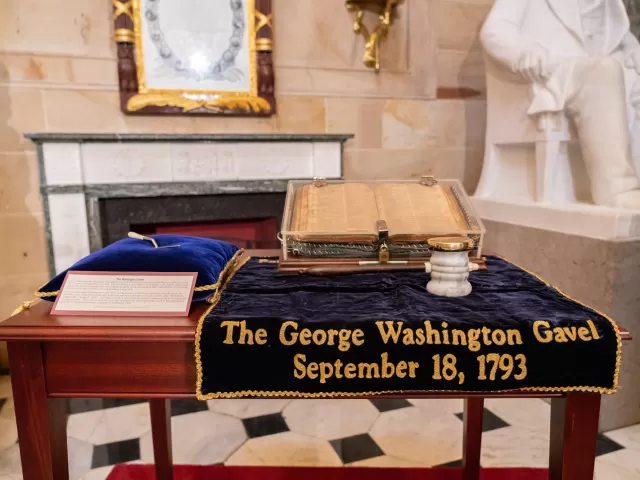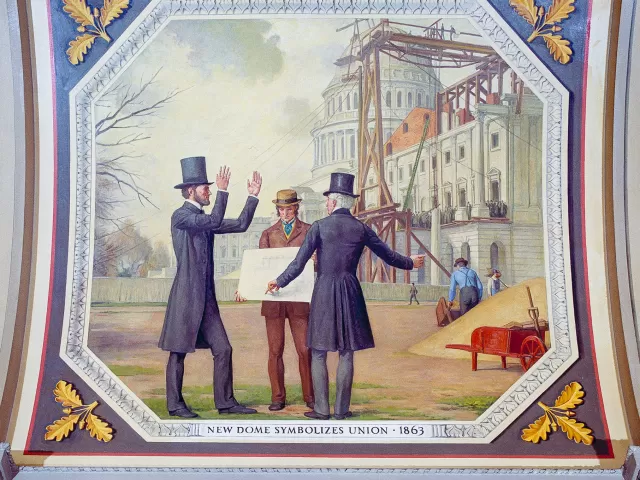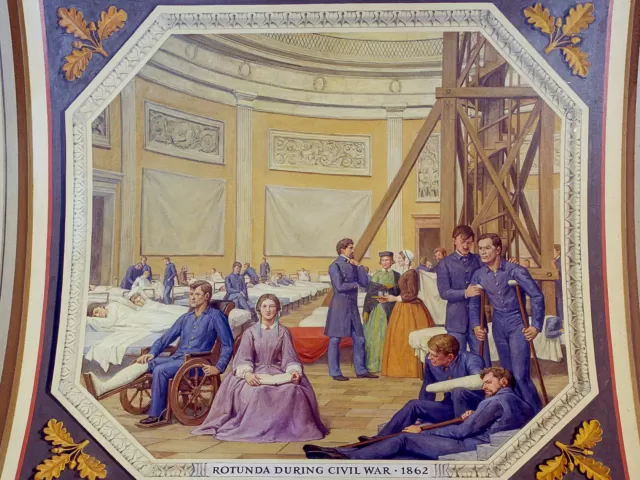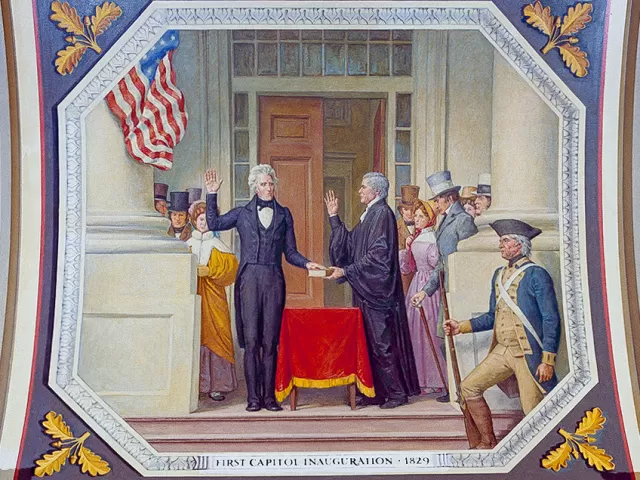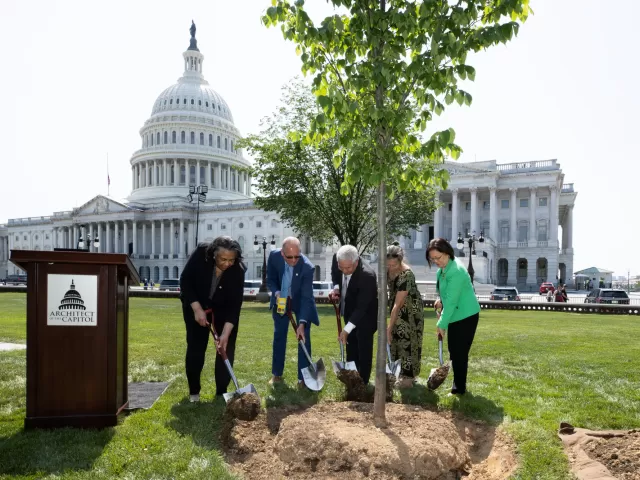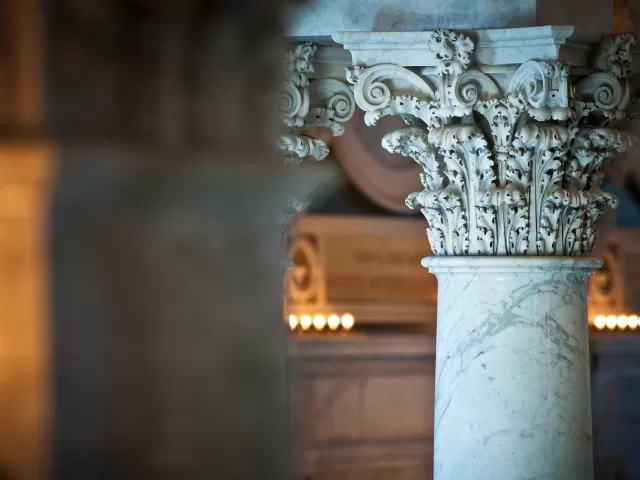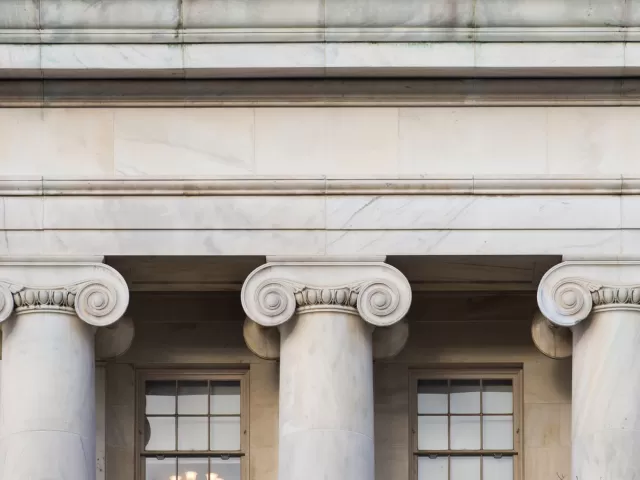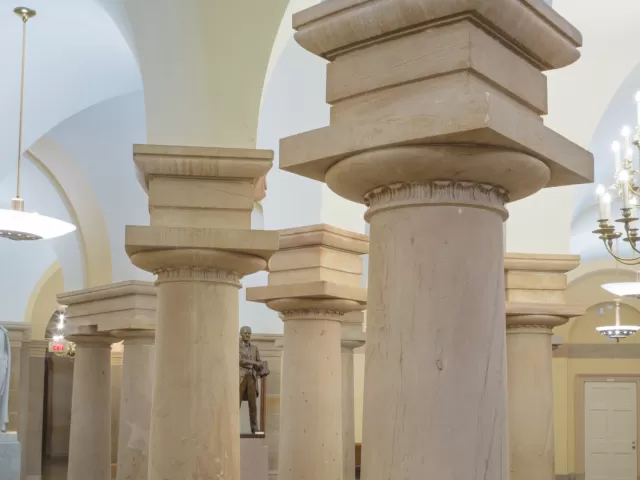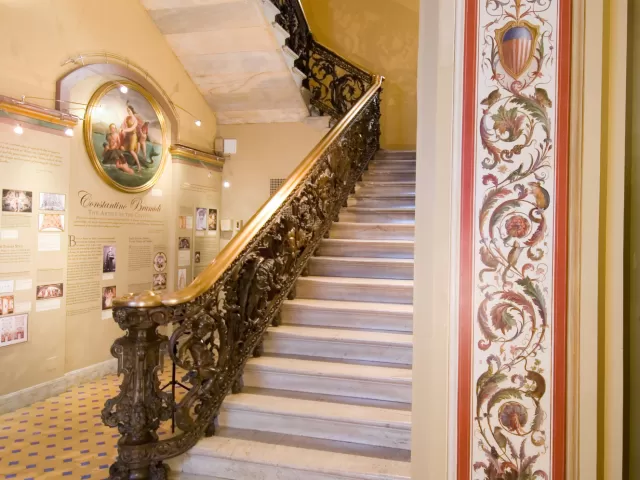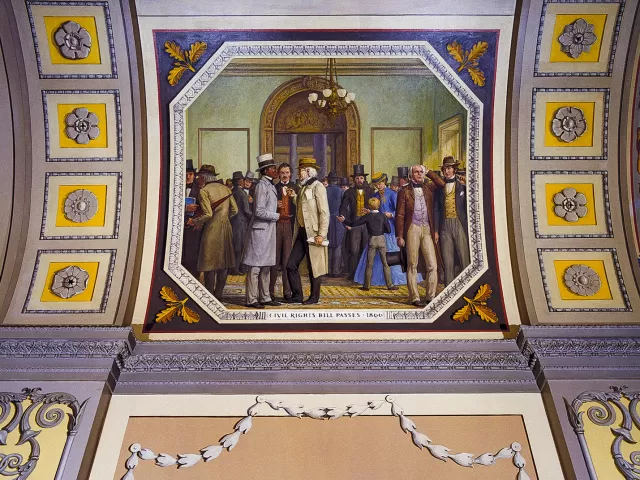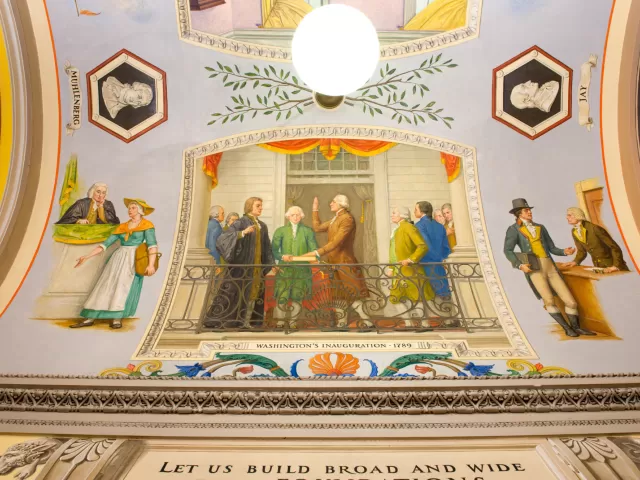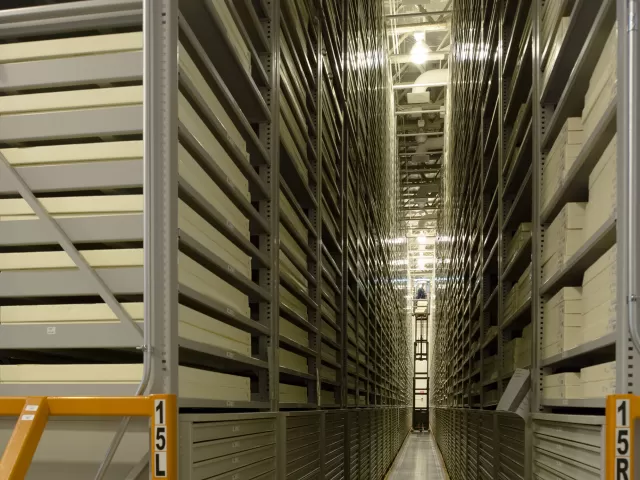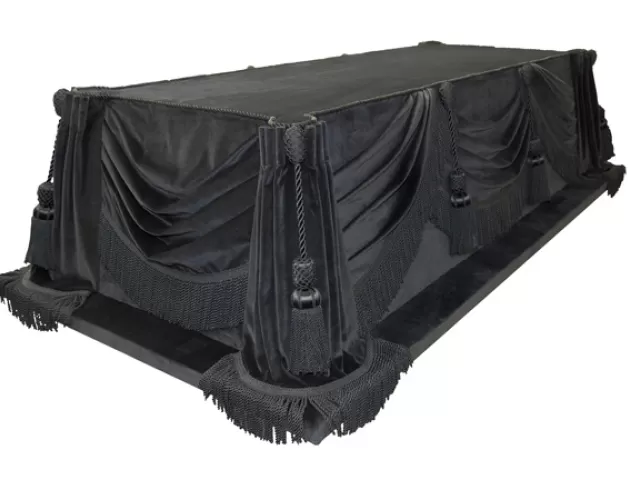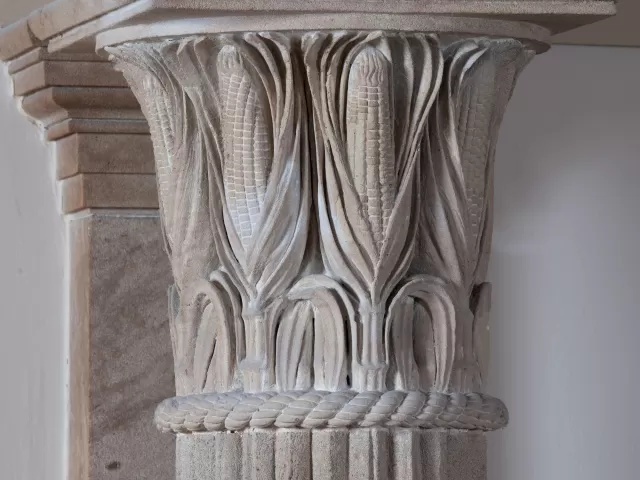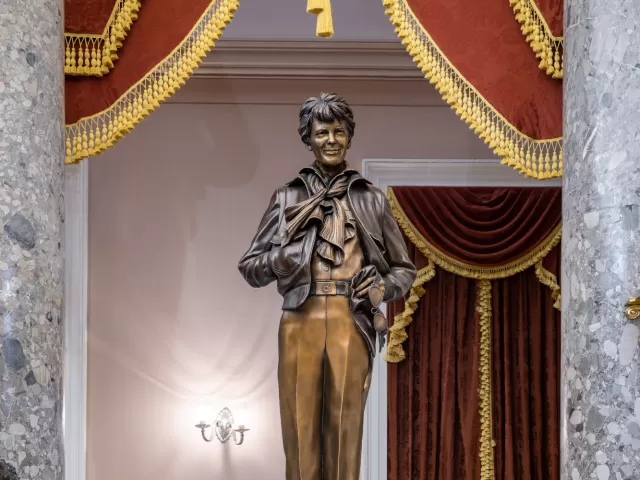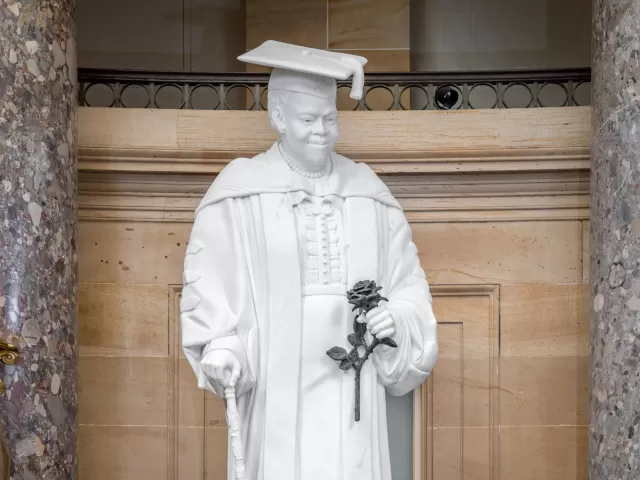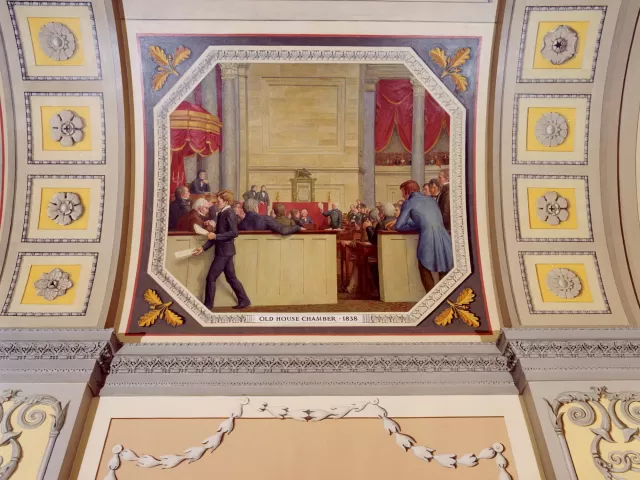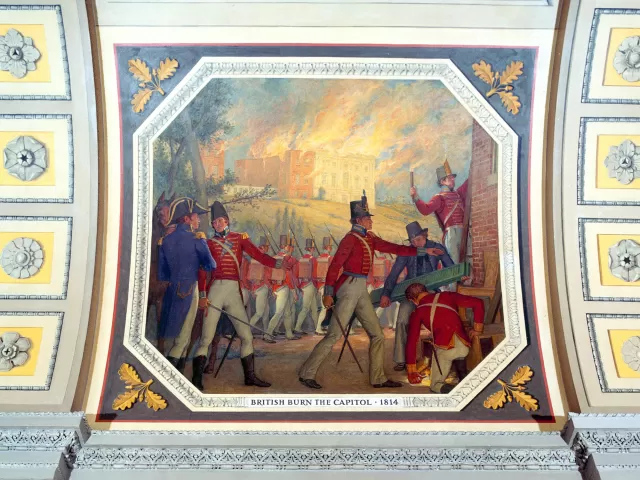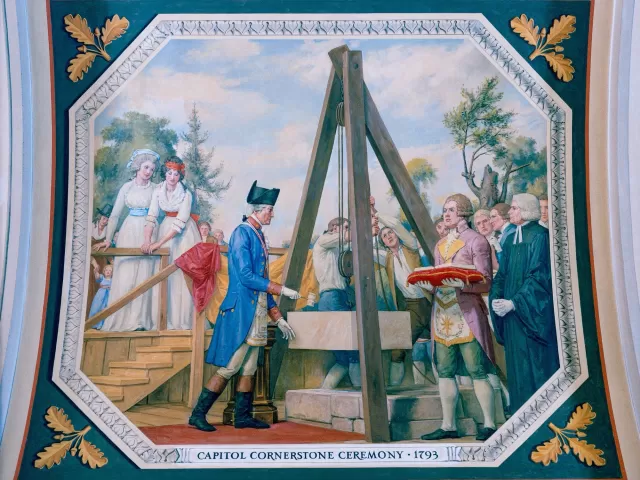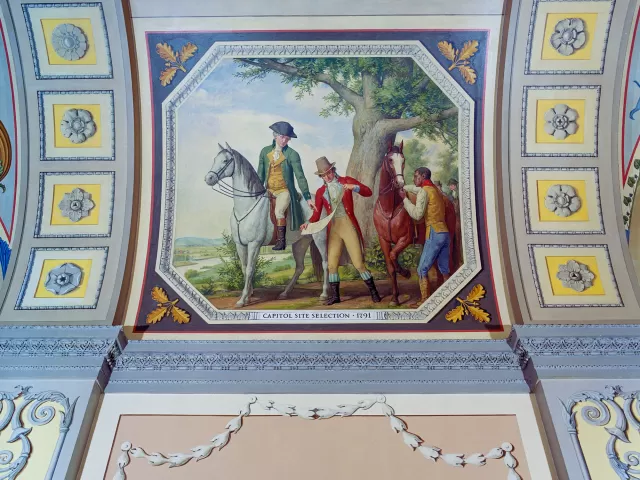Displaying 121 - 150 of 510 Clear
Highlight
In the summer of 1783 Congress moved to Princeton, New Jersey, where it met in Nassau Hall of the College of New Jersey (now Princeton University).
Highlight
The next congressional meeting place was the State House in Annapolis, Maryland. It was here that George Washington resigned his commission as commander in chief of the Continental Army.
Highlight
After leaving Baltimore the Congress met briefly in Philadelphia but soon moved to York, Pennsylvania, where it met for nine months in the old Court House.
Highlight
The Congress moved to Baltimore, Maryland, a safer haven during the war than Philadelphia, after the Declaration of Independence. It met in this rented building, since known as Old Congress House; the building was destroyed by fire in 1860.
Highlight
On July 4, 1776, delegates to the second Continental Congress issued the Declaration of Independence at Philadelphia's State House, now known as Independence Hall.
Highlight
The first Continental Congress met at Carpenters' Hall in Philadelphia, Pennsylvania, where they agreed to suspend trade with Great Britain.
Highlight
The Old City Hall in New York was the meeting place for delegates from nine colonies, who drew up a Declaration of Rights.
Highlight
At the old Stadt Huys in Albany, New York, colonial representatives devised a plan for a union of the colonies. The plan was ultimately rejected, but it became a guide for the later federal government.
Highlight
Contemporary Masonic practice included the laying of an inscribed metal plate along with a cornerstone. Caleb Bentley, a Quaker clockmaker and silversmith who lived in Georgetown not far from Suter's Fountain Inn, where the commissioners held their meetings, made the silver plate for the Capitol
Highlight
Thomas U. Walter, who was hired as architect of the Capitol extensions in 1851, also designed the building's new cast-iron dome. In this mural Walter (center, in brown coat and top hat) shows his dome design to President Abraham Lincoln. About the Cox Corridors Murals The first floor of the U.S
Highlight
For about six weeks in the fall of 1862 the Rotunda (as well as other chambers and hallways) was used as an emergency hospital. Among the nurses who served here were Dorothea Dix and Clara Barton, later the founder of the American Red Cross. About the Cox Corridors Murals The first floor of the U.S
Highlight
Andrew Jackson, the first president to be inaugurated outdoors at the Capitol, is shown taking the oath from Chief Justice John Marshall. This ceremony on the east front portico began a tradition observed by most presidents until 1981, when inaugurations were moved to the west front. About the Cox
Highlight
U.S. Capitol Grounds memorial tree to honor the life and service of Senate Librarian Leona Faust sponsored by Senate Majority Leader Charles E. Schumer and Senate Minority Leader Mitch McConnell.
Highlight
Corinthian columns are the most ornate, slender and sleek of the three Greek orders.
Highlight
The Ionic column is typically identified by its capital, which includes large paired spiral scrolls, or volutes.
Highlight
Doric columns typically have a simple, rounded capital at the top; a heavy, fluted or smooth column shaft; and no base. Flutes are vertical, parallel channels that run the length of a column.
Place
The USBG Production Facility is located in D.C.'s Anacostia neighborhood, about eight miles from Capitol Hill, and is home to some of the world's most exotic and beautiful plants. The facility opened in 1994 and is 85,000 square feet under glass divided into 34 greenhouse bays.
Highlight
During the mid-19th-century expansion of the U.S. Capitol, which added the House and Senate extensions, four private staircases were installed to allow representatives and senators to move quickly between their second-floor chambers and the building's first floor. Two are located near the House
Highlight
The 1866 civil rights bill, which prohibited discrimination on the bases of race or previous condition of slavery, prefigured the 14th amendment to the Constitution. In the foreground of the mural, former slave Henry Garnet is shown speaking with newspaper editor Horace Greeley, who supported
Highlight
George Washington was sworn in as the nation's first president on April 30, 1789, on the balcony of Federal Hall in New York. The mural depicts (from left to right) Robert R. Livingston, chancellor of the state of New York, administering the oath; Secretary of the Senate Samuel Otis holding the
Place
The Architect of the Capitol (AOC) manages all of the buildings and grounds on Capitol Hill, but we also maintain several facilities across the National Capital Region, including Fort Meade, Maryland.
Highlight
The Lincoln catafalque is a platform constructed in 1865 to support the casket of Abraham Lincoln while the president's body lay in state in the U.S. Capitol Rotunda. It is a simple base of rough pine boards nailed together and covered with black cloth.
Highlight
Some of the oldest and most famous interior features of the Capitol are located near the entrance to the Old Supreme Court Chamber. These six corncob columns, designed ca. 1808 by Benjamin Henry Latrobe, are among the most unusual and significant architectural works of the early Republic.
Highlight
Amelia Mary Earhart (1897-c.1937) was a record-setting aviator, an author, and a businesswoman. This statue was given to the National Statuary Hall Collection by Kansas in 2022. Sculptors Mark and George Lundeen are brothers; they also sculpted the statue of John L. "Jack" Swigert.
Highlight
Dr. Mary McLeod Bethune (1875-1955) was an educator, civil rights activist, and presidential advisor. This statue was given to the National Statuary Hall Collection by Florida in 2022. Nilda Comas is the first artist of Puerto Rican descent commissioned to sculpt a statue for the National Statuary
Highlight
U.S. Capitol Grounds commemorative tree to honor the people of New Hampshire sponsored by the New Hampshire Congressional Delegation in 2019.
Highlight
The first House chamber in the Capitol was designed by Benjamin Henry Latrobe. After the House moved to its present chamber in 1857, this room was designated National Statuary Hall. John Quincy Adams (center, with raised hand) is shown speaking in the chamber; Speaker James K. Polk is seated under
Highlight
On August 24, 1814, during the War of 1812, British troops burned the Capitol and almost all other public buildings in Washington. The Capitol, shown ablaze in the background, was gutted, and only a sudden rainstorm prevented its complete destruction. About the Cox Corridors Murals The first floor
Highlight
The Capitol's first cornerstone was laid on September 18, 1793, by President Washington in a Masonic ceremony. The ceremony was preceded by a parade and followed by celebration and feasting. About the Cox Corridors Murals The first floor of the U.S. Capitol's House wing is elaborately decorated with
Highlight
After Congress selected an area along the Potomac River for the site of the new federal city, President Washington chose French engineer Pierre Charles L'Enfant to lay out the city and design the public buildings. Here L'Enfant (center) shows the president his city plan. About the Cox Corridors
